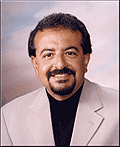

Reversing the Damage of Early Childhood Interpretations That Diminish Self Esteem
By Dr. Joe Rubino
Creator, http://www.SelfEsteemSystem.com
Founder, http://www.CenterForPersonalReinvention.com
Studies show that high self-esteem is the #1 ingredient essential for developing happiness, fulfillment, rich relationships, and overall success in life. In the life of every child, usually sometime between birth and age 6, something happens to have the child doubt him or herself. Someone says or does something that has the child believe that he or she is flawed, unlovable, not worthy, imperfect.
This initial stressful incident is the first real realization that the child is not perfect and fails to measure up to society’s standards in some important way. The initial upset can be one of two types. The first assault could be an unkind word from a peer or authority figure, a spanking, an insult, an argument, a bullying or name calling episode. It could occur as a direct result of something the child said or did that provoked an attack on his or her sense of worthiness or ability to fit in.
The second type of self-esteem diminishing episode can be as a result of the child misinterpreting someone’s words or actions to mean that the child is flawed, unlovable, or defective in some way. In such a case, no insult or demeaning connotation was intended. The facts were that someone said or did something. The child mistakenly made up that there was something wrong with him or her as a result of what was said or done.
In our continuing series, here are 5 additional ways that parents and teachers can help children develop soaring self-esteem:
- Teach children to welcome problems by understanding that each problem possesses for them an insightful gift awaiting their discovery.
- Teach children to identify their most important values and to honor them in all their decisions so that they might live without regrets.
- Teach children to respect the magnificence of others and support them to understand that they can learn something from every single person if they listen with this intention.
- Teach children the difference between self-esteem and ego by encouraging their appreciation for what it is like in the world of others and assisting them to develop their effectiveness with other people.
- Live by example, acknowledge when you make a mistake, do whatever is necessary to clean it up and teach children the value of doing the same.
For more information visit http://www.examiner.com/examiner/x-30453-Massachusetts-Health-and-Happiness-Examiner~y2009m11d24-Building-self-esteem-intentionally-in-children and http://www.theselfesteembook.com
For more information on how to build self-esteem, visit http://www.theselfesteembook.com and http://www.highselfesteemkids.com
•8•Joseph S. Rubino, D.M.D.
 Dr. Joe Rubino is an internationally acclaimed personal development trainer, life-changing success and life-optimization coach and best-selling author of 12 books available worldwide in 23 languages. He is the CEO of The Center for Personal Reinvention, an organization that has impacted the lives of more than 2 million people through personal and leadership development programs, providing participants with tools to maximize their happiness, self-esteem, communication skills, productivity and personal effectiveness. To subscribe to his complimentary newsletters, learn more about championing your self-esteem, communicating more effectively, life-impacting personal or group coaching, and transformational courses or to read about his books, visit www.CenterForPersonalReinvention.com and http://www.TheSelfEsteemBook.com and http://www.highselfesteemkids.com.
Dr. Joe Rubino is an internationally acclaimed personal development trainer, life-changing success and life-optimization coach and best-selling author of 12 books available worldwide in 23 languages. He is the CEO of The Center for Personal Reinvention, an organization that has impacted the lives of more than 2 million people through personal and leadership development programs, providing participants with tools to maximize their happiness, self-esteem, communication skills, productivity and personal effectiveness. To subscribe to his complimentary newsletters, learn more about championing your self-esteem, communicating more effectively, life-impacting personal or group coaching, and transformational courses or to read about his books, visit www.CenterForPersonalReinvention.com and http://www.TheSelfEsteemBook.com and http://www.highselfesteemkids.com.
About Us | Contact Us | Terms Of Service | Disclaimer | Privacy Policy

